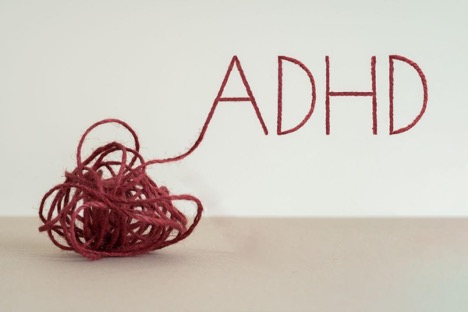
Recognizing ADHD, or Attention Deficit Hyperactivity Disorder in adults, can be a complex endeavor. Unlike in children, where ADHD symptoms are often more conspicuous and widely recognized, adult ADHD can manifest subtly and affect multiple areas of life. This comprehensive exploration of ADHD in adults will delve into the signs and symptoms, how it differs from the disorder in children, the challenges it poses, and why recognizing it can lead to transformative changes in a person’s life.
Our North Ward Behavioral Health Center is a practice under the esteemed Nirvana Healthcare Management Services umbrella. We diagnose and treat various mental conditions, including ADHD. Call or visit our practice today to get a coordinated care plan just for you!
The Difference Between ADD and ADHD
ADHD, or Attention Deficit Hyperactivity Disorder, is the contemporary term used to describe what was once referred to as ADD, or Attention Deficit Disorder. The shift from ADD to ADHD occurred to more accurately reflect the range of symptoms associated with the disorder, which include inattention, hyperactivity, and impulsivity—not all of which are present in every individual. The term ADD, which emphasized only the inattention aspects, was phased out to avoid confusion and to recognize that the disorder’s scope extends beyond simple attentional issues. The current terminology classifies ADHD into three subtypes: predominantly inattentive, predominantly hyperactive-impulsive, and combined, which allows for a more comprehensive understanding and targeted management of the disorder.
Understanding ADHD in Adults
ADHD is typically known for its onset in childhood, but its implications often extend into adulthood and can remain significant throughout a person’s life. Defined by the American Psychiatric Association, ADHD is a mental health disorder characterized by a pattern of inattention, hyperactivity, and impulsivity that is more pronounced than typical behaviors seen at comparable developmental levels.
While ADHD affects individuals of all ages, adult ADHD has unique traits and impacts. Many adults with ADHD may not realize they have the disorder, as ADHD symptoms can often be mistaken for personal flaws or misinterpreted as other mental health conditions.
Additionally, ADHD can show up differently in men and women. Due to a historical bias towards diagnosing young boys, many women don’t get a diagnosis until adulthood. At Northward Behavioral Health Center, we recognize the unique challenges faced by men and women with this mental health condition and are here to make sure everyone gets the care and treatment they deserve.
Life Challenges Faced by Adults with ADHD
Living with undiagnosed ADHD can lead to a variety of life complications, including academic and occupational difficulties, relationship issues, and low self-esteem. Here are some of the challenges commonly faced by adults with ADHD:
- Professional Life: ADHD can lead to job dissatisfaction, unstable career paths, and underachievement despite having the same potential as peers.
- Relationships: Impulsivity and forgetfulness can strain relationships with family, friends, and partners.
- Self-Esteem Issues: Continuous struggles with self-regulation can lead to feelings of failure and chronic underachievement.
Signs & Symptoms of ADHD in Women
We want women to have the tools and resources they need to take control of their mental health. That’s why we’ve broken down adult ADHD symptoms into those most widely experienced by men and women. Here are some of the common attributes and experiences many women face.
Inattentiveness
Women with ADHD often experience significant difficulties with concentration. This symptom can manifest as trouble following conversations, difficulty staying on task, frequent zoning out during meetings, or losing focus during routine activities.
Internalized Hyperactivity
Hyperactivity in women with ADHD might not always be overtly observable. Instead of the visible hyperactivity seen in men, women may experience a sense of being internally restless. They might feel an overwhelming urge to keep busy, a mental whirlwind that doesn’t necessarily translate to physical movement.
Impulsivity
Impulsivity in women with ADHD can include abrupt decisions in personal or professional life, such as sudden changes in job roles or making large purchases without thorough consideration. This impulsivity might also manifest in social interactions, where they may interrupt others or engage in conversations without fully thinking through their comments.
Signs & Symptoms of ADHD in Men
Externalized Hyperactivity
Men with ADHD are more likely to exhibit classic symptoms of hyperactivity that are easier to identify. This includes behaviors like constant fidgeting, an inability to stay seated for prolonged periods, and a general sense of restlessness that demands a physical outlet.
Behavioral Issues
ADHD in men often comes with more overt behavioral problems compared to women. This can manifest as a propensity for risky behaviors, challenges in handling authority, or issues with law enforcement. These behaviors are frequently a result of the impulsivity and hyperactivity components of ADHD.
Inattentiveness
While inattentiveness is common in both men and women with ADHD, it often goes underdiagnosed in men because their other, more disruptive behaviors overshadow it. In men, inattentiveness might not be as severe or as consistently present as in women, but it can still significantly impact their work and personal lives.
Learning Disabilities & Adults With ADHD
Adults with ADHD often experience co-occurring learning disabilities, which can complicate both diagnosis and management of each condition. Common learning disabilities that intersect with ADHD include dyslexia, which affects reading, and dyscalculia, which impacts math skills. These challenges can exacerbate the difficulties in organization, time management, and task completion that are characteristic of ADHD. Recognizing the overlap between ADHD and learning disabilities is crucial for providing effective support and strategies, enabling men and women alike to achieve better educational and professional outcomes.
Substance Abuse & ADHD
Adults with ADHD are particularly susceptible to substance use disorders, largely due to their impulsive traits and the frequent co-occurrence of other mental health disorders like anxiety or depression, which may prompt self-medication. Substances like alcohol and drugs can initially seem like viable solutions to challenges related to social interactions, self-esteem, or other ADHD-related difficulties. However, substance use often exacerbates ADHD symptoms, creating a detrimental cycle of increased dependency and dysfunction.
Recognizing these risks and addressing them with comprehensive support is essential. At Northward Behavioral Health Center, we have addiction treatment programs that are tailored to meet the needs of individuals with ADHD, ensuring they receive the focused care necessary to manage both conditions effectively.
Diagnosis and Recognition
Receiving an ADHD diagnosis as an adult can be an uphill task. The Diagnostic and Statistical Manual of Mental Disorders, published by the American Psychiatric Association, sets forth criteria specifically tailored to diagnose ADHD. However, many adults struggle to find professionals who can recognize and diagnose ADHD beyond its typical childhood presentation.
The Role of Self-Recognition
Self-recognition of ADHD symptoms can be a critical first step. Many adults stumble upon their condition after learning about ADHD in the context of their children’s diagnosis or by relating to media portrayals of the disorder.
Seeking Professional Evaluation
A thorough evaluation by a mental health professional, typically involving cognitive assessments and a detailed history, is essential for an accurate diagnosis. The Mental Health Services Administration supports the importance of proper diagnosis and management of ADHD, emphasizing the role of professional assessment in distinguishing ADHD from other mental health disorders such as anxiety or depression.
Management and Treatment
Effective management of ADHD in adults requires a multi-faceted approach that includes medication, therapy, and lifestyle adjustments. Tailoring these elements to fit the individual’s specific needs is crucial for managing symptoms and improving overall functioning.
ADHD Medications
Medications are a cornerstone of ADHD treatment, particularly stimulant medications, which are commonly prescribed to help reduce symptoms such as inattention, hyperactivity, and impulsivity. Non-stimulant medications are also available and may be used when stimulants are not suitable or well-tolerated. At Nirvana Healthcare Management Services, our pharmacy services and medication management solutions guarantee that each patient receives the most appropriate medication based on their unique health profile and treatment goals.
Psychotherapy
Psychotherapy, particularly Cognitive Behavioral Therapy (CBT), is another essential component of managing adult ADHD. CBT helps individuals modify negative patterns of thinking and behavior, which can lead to improvements in emotional regulation and social skills. Therapy can also address other psychological issues often associated with ADHD, such as low self-esteem and anxiety. By developing coping strategies and better self-awareness, individuals can enhance their ability to manage ADHD symptoms more effectively in their daily lives.
Lifestyle Modifications
Lifestyle changes can significantly impact the effectiveness of other ADHD treatments. Key modifications include establishing a routine to help manage time and tasks more effectively, engaging in regular physical activity, which can improve concentration and mood, and ensuring a nutritious diet. Adequate sleep is also critical, as lack of sleep can exacerbate symptoms. At Nirvana Healthcare Management Services, we provide guidance on making these lifestyle adjustments, offering practical advice and support to help our clients implement and maintain these changes as part of a holistic approach to ADHD.
Importance of Support and Resources
Support from family, friends, and peers can be invaluable. Educational resources and support groups provided by organizations such as the Mental Health Services Administration can also play a crucial role in managing ADHD.
Speak With Our Mental Health Professionals Today!
Recognizing the signs and symptoms of ADHD in adults is the first step toward change. At Nirvana Healthcare Management Services, we understand the complexities of living with adult ADHD and are dedicated to providing comprehensive support and treatment. We encourage anyone who sees aspects of themselves in this description to schedule an appointment. Embracing your mental health condition with our professional help can lead to a brighter, happier future.
